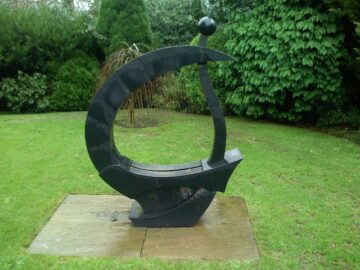Oscar Schwartz at The Paris Review:
 In Cave’s weltanschauung, as laid out in the letter, the machine is a priori precluded from participating in the authentic creative act, because it is not, well, human. If this argument sounds hollow and slightly narcissistic, that’s because it is. It follows a circular logic: humans (and Nick Cave) are special because they alone make art, and art is special because it is alone made by humans (and Nick Cave). His argument is also totally familiar and banal—a platitude so endlessly repeated in contemporary discourse that it feels in some way hard-baked into the culture. According to historians of ideas (see Arthur Lovejoy, Isaiah Berlin, Alfred North Whitehead), this thesis took form sometime in the second half of the eighteenth century. A brief and noncomprehensive summary: to preserve human dignity in the face of industrialization, philosophers and poets, who were later called the Romantics, began to redraw ontological boundaries, placing humans, nature, and art on one side, and machines, industry, and rationalism on the other. Poets became paragons of the human, and their poems examples of that which could never be replicated by the machine. William Blake, for instance, one of Cave’s heroes, proposed that if it were not for the “Poetic or Prophetic character,” the universe would become but a “mill with complicated wheels.”
In Cave’s weltanschauung, as laid out in the letter, the machine is a priori precluded from participating in the authentic creative act, because it is not, well, human. If this argument sounds hollow and slightly narcissistic, that’s because it is. It follows a circular logic: humans (and Nick Cave) are special because they alone make art, and art is special because it is alone made by humans (and Nick Cave). His argument is also totally familiar and banal—a platitude so endlessly repeated in contemporary discourse that it feels in some way hard-baked into the culture. According to historians of ideas (see Arthur Lovejoy, Isaiah Berlin, Alfred North Whitehead), this thesis took form sometime in the second half of the eighteenth century. A brief and noncomprehensive summary: to preserve human dignity in the face of industrialization, philosophers and poets, who were later called the Romantics, began to redraw ontological boundaries, placing humans, nature, and art on one side, and machines, industry, and rationalism on the other. Poets became paragons of the human, and their poems examples of that which could never be replicated by the machine. William Blake, for instance, one of Cave’s heroes, proposed that if it were not for the “Poetic or Prophetic character,” the universe would become but a “mill with complicated wheels.”
more here.
